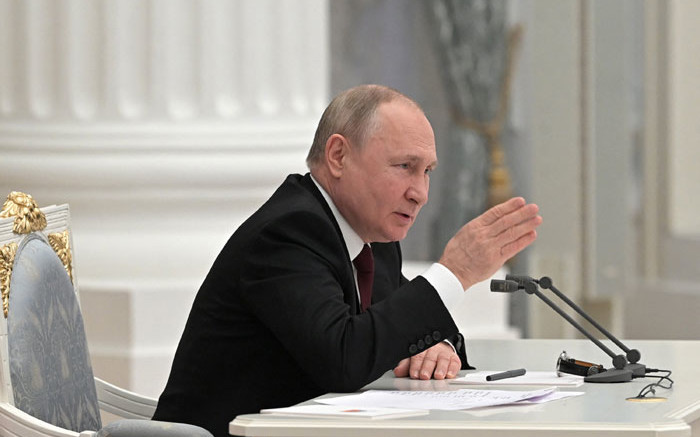
The decision is “practically the starting signal for the presidential election campaign,” said the chamber’s chairwoman, Valentina Matviyenko.
Russian President Vladimir Putin chairs a meeting with Security Council members in Moscow on February 21, 2022. Photo: Alexey NIKOLSKY/Sputnik/AFP
MOSCOW – Russia on Thursday set March 17 as the date for a presidential election that is expected to be a further boost for Vladimir Putin, who has silenced opposition in more than two decades in power.
In a session broadcast live on Russian television, the upper house of parliament unanimously approved the date of the vote.
The decision is “practically the starting signal for the presidential election campaign,” said the chamber’s chairwoman, Valentina Matviyenko.
Putin, a former KGB agent who has been in power in Russia as either president or prime minister since 1999, has not officially announced whether he will run for another six-year term.
The 71-year-old will hold a year-end press conference next week where he could announce his candidacy.
It will be the first time he has held such a press conference since he ordered Russian troops into Ukraine in February 2022.
Russia has since said it has annexed the Ukrainian regions of Lugansk, Donetsk, Kherson and Zaporizhzhia, although Russian troops do not fully control them.
A vote is also planned in these regions.
“Despite the difficult external circumstances and the enemy’s attempts to weaken Russia, we remain true to our core constitutional values,” Matvienko said.
“UNITED LIKE NEVER BEFORE”
She added that Russians were united around Putin’s government “as never before” and “the state’s task is to show that it is worthy of that trust and to prevent any provocations.”
Putin would run for a fifth term as president. After constitutional reform in 2020, he could remain in power as president until 2036.
Since the campaign began in Ukraine, Putin has become a pariah among Western leaders and his country has been hit by unprecedented sanctions.
But the Kremlin chief has become increasingly confident in recent weeks as Western support for Ukraine has waned and Ukraine’s counteroffensive has largely failed to penetrate Russian lines.
The Russian economy has also proven resilient to sanctions and is growing again as Russia targets its energy exports to Asian customers.
After his first two terms as president, Putin briefly became prime minister between 2008 and 2012, while his protégé Dmitry Medvedev became president.
The change was intended to circumvent a constitutional ban on serving more than two consecutive presidential terms.
During his long rule, Putin has silenced dissent and led Russia toward authoritarianism and nationalism.
Almost all opposition figures have either been imprisoned, are in exile or have been killed under unclear circumstances.
Since the start of the war in Ukraine, Russia has imprisoned war opponents with stricter laws that prohibit criticism of the army.

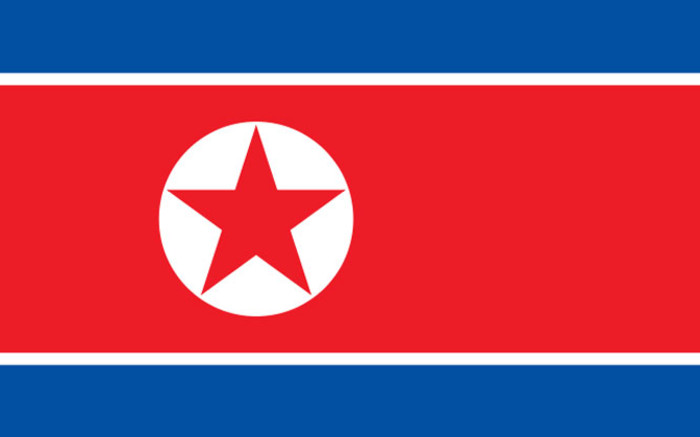
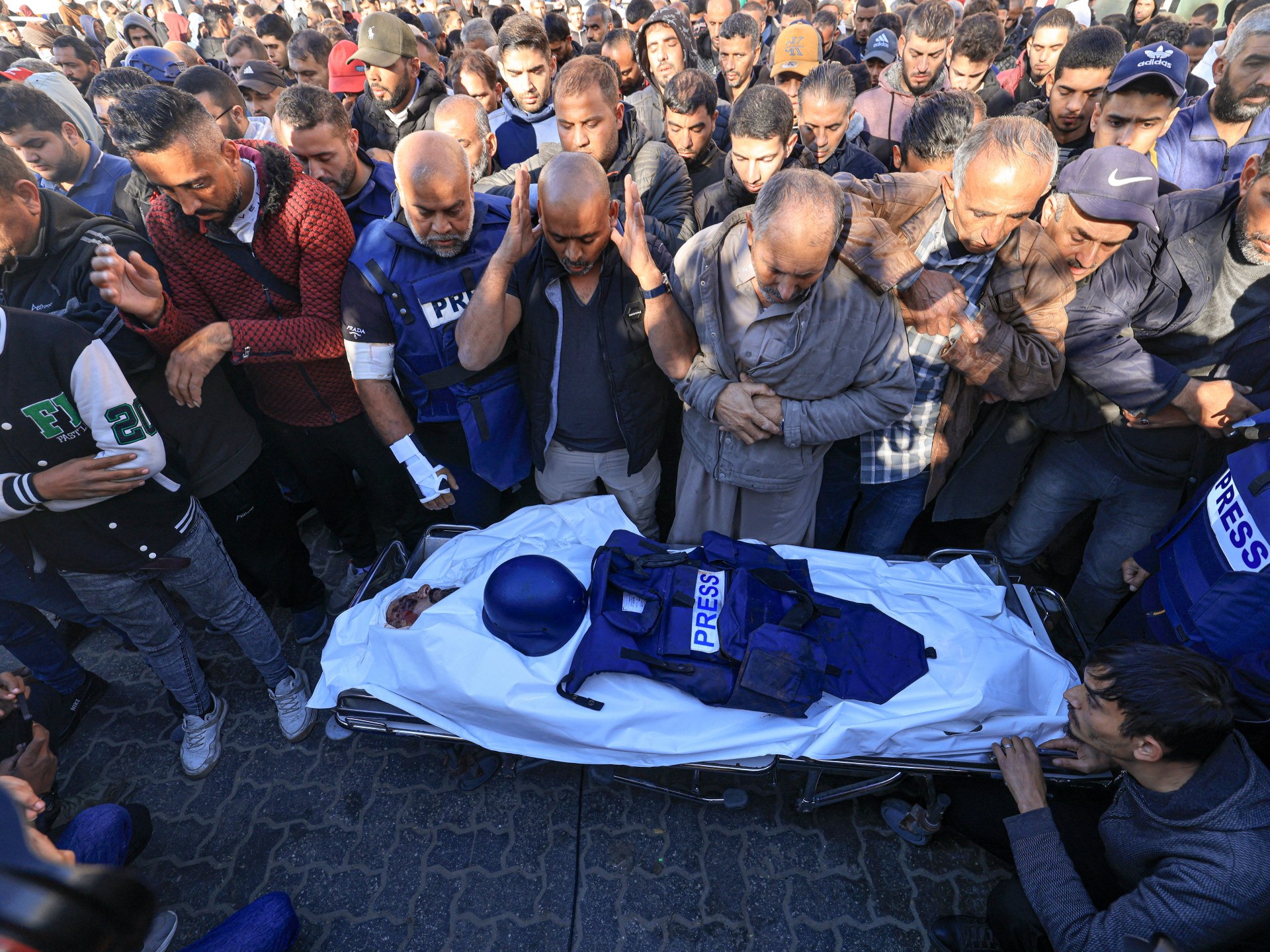
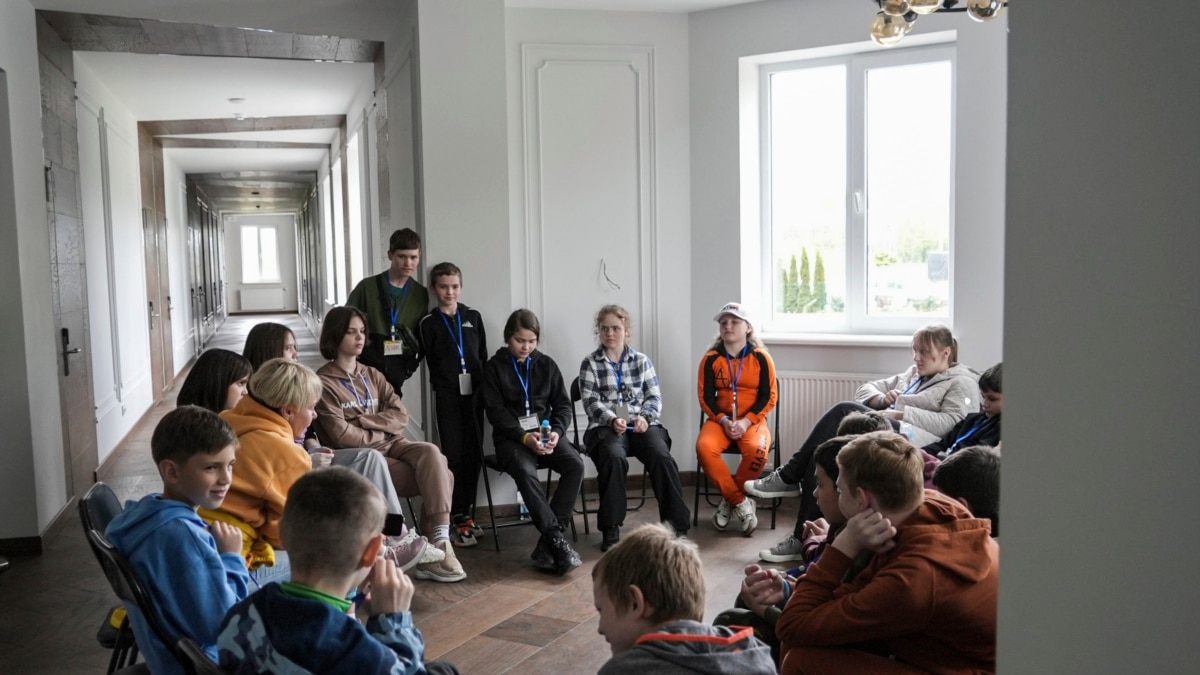
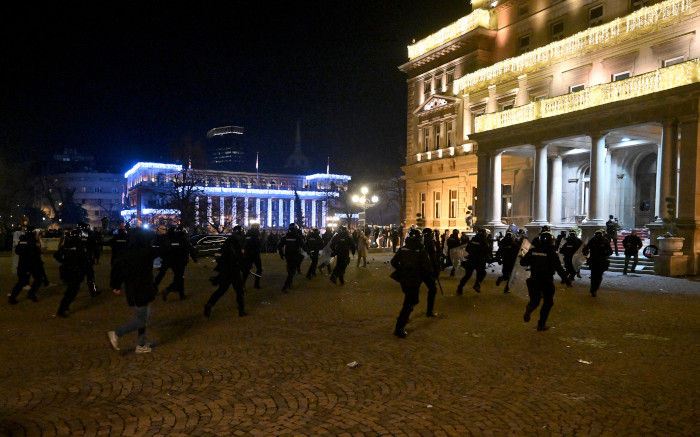

Recent Comments